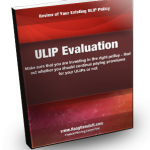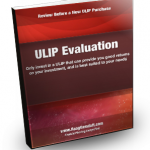Welcome to Week 3 of the 1-Month course “Basics of Personal Finance”.
Last week, we learnt about Investments. This week, let’s focus on Life Insurance.
What is Life Insurance?
Life insurance is a long-term contract between you and the insurer. In this contract, you agree to pay a periodic amount to the company regularly. In turn, the company agrees to pay your nominee or your legal heir a pre-decided sum in case you die within the pre-decided time.
The contract between you and the life insurance company is called the Life Insurance Policy. The periodic payment that you make is called the Premium. The amount that the insurance company would pay in case of your death is called the Sum Assured.
The period for which you pay the premium is called the Premium Paying Term. And the duration for which the company promises to pay out the sum assured in case of your death is called the Term or the Tenure of the policy.
In most life insurance policies, the premium paying term and the tenure are the same, but they may differ in some type of policies.
Why should you buy Life Insurance?
Picture this: You are leading a comfortable life. You work hard, and earn enough to keep yourself and your family happy. Your life is going on as planned, and you expect to increase your earnings and the standard of living of your family as time goes by.
Now, for a second, remove yourself from the picture. Do you see your family living as comfortably without you as before? Would their standard of living remain the same of you are not around?
The most likely answer is – No. The loss of an income always creates a dent in the financial plans of any family. And if that income is the only income, the damage can be very severe. Nothing can be done to compensate for the emotional loss of the family. But shouldn’t we do something to take care of them financially when we are not there?
Of course we should – especially when help is readily available in the form of Life Insurance!
Articles that you would like to read:
- “Goal Based Investing“
- “Want to own a company? Buy stock!“
- “Want to retire early? Here’s what you need“
- “What is Price to Earnings (PE) ratio?“
Who should buy life insurance?
If you have anyone who relies on you for their expenses, you should buy life insurance. That is, if you have any dependent, you should buy life insurance.
The dependent(s) can be your parents, spouse, kids – anyone who can be in trouble financially if you are not around.
Types of Life Insurance Policies
There are three popular forms of life insurance policies:
- Endowment Plans
- Unit Linked Insurance Plans (ULIPs)
- Term Insurance Plans
Let’s discuss each in detail.
Endowment Plan
In Endowment plans, the premium paid is partly used to secure insurance for your life, and partly used for investments to generate returns. Thus, this is insurance plus investment type of a plan.
Endowment plans were the most popular plans till some years back. This was largely because there were very few other options, and because the returns were assured by the insurance company.
The insurance company generally invests the money in virtually risk-free government debt – which is very safe, but earns meager returns. Each year, the company declares a “bonus”, which is nothing but the profit on the investments less the administrative and other expenses of the company.
In case you survive the tenure of the policy, an amount equal to the sum insured plus the accumulated bonuses is paid to you. If you expire during the tenure of the policy, the sum insured plus the accumulated bonuses is paid to the nominee.
The investments made by the insurance company are absolutely non-transparent. You have absolutely no control over the investment made by the company. In fact, you would not even know how much money is invested in which asset!
The bonuses declared are not very transparent as well – you don’t know how much the company has earned, and you don’t know how much the administrative and other expenses of the company are!
Therefore, for people seeking insurance as well as investment in the same product, ULIPs have become very popular.
Articles that you would like to read:
- “Your Personal Net Worth – Importance & Calculation“
- “Saving enough is not enough – Effect of Inflation on Savings“
- “Your Personal Net Worth – Importance & Calculation“
- “Saving enough is not enough – Effect of Inflation on Savings“
- “Cost Averaging“
- “Start saving early and gain from Compounding – Early bird gets the worm“
Unit Linked Insurance Plan (ULIP)
It is a type of insurance, in which your premium amount is dived into two parts.
- One part, a small fraction of your premium, is used to provide you insurance.
- The other part, the much larger portion, is used to buy “units” of investment.
The first part (insurance part) depends on the sum insured – the higher the sum insured, the more is the money spent to buy insurance.
The money from the other part (investment part) is invested based on the type of the units – it can be largely in equities, or only in debt, and all the flavours in-between. The value of these units increases depending on the returns these investments provide.
At any time, the sum insured is either the original sum insured that you chose at the time of buying insurance, or the NAV of all your units – whichever is higher.
 ULIP Evaluation – Review of Your Existing ULIP
ULIP Evaluation – Review of Your Existing ULIP
- Do you currently have a ULIP, and are wondering whether to continue it or not?
- Did an insurance agent sell you a ULIP based on some promises, and now you are reconsidering you decision?
- Are you wondering whether the ULIP you have purchased is good or not?
- Did you purchase a ULIP in haste, just to save income tax (IT)?
If the answer to any of these questions is a “yes”, this service is meant just for you!
Advantages of ULIP over Endowment Plan
A ULIP provides you much more control over where your money is invested – You decide which kind of units to buy – they can be largely for stocks, for debt, or a combination of both.
Also, you can switch between different units – usually a couple of times a year, depending on your insurance company. This means that depending on your analysis, you can move from stocks to debt to a hybrid investment – whichever way you want.
This compares very favourably to endowment plans, where you have absolutely no control over where your money is invested.
Another big advantage of ULIPs is that after a couple of years of buying the plan, even if you are unable to pay the premiums, the insurance cover continues. When you don’t pay the premium, the insurance company sells some units to get an amount so that it can continue to provide the life cover for you!
But in spite of it being better than endowment plans, ULIPs too are similar to them in one aspect: they provide insurance and investment.
What if someone wants just insurance – which is the correct way to buy insurance anyway? The answer is: Term insurance.
 ULIP Evaluation – Review Before A New ULIP Purchase
ULIP Evaluation – Review Before A New ULIP Purchase
Purchase of a Unit Linked Insurance Plan or Policy (ULIP) usually means shelling out a large premium – not once, but year after year. Also, cancelling a ULIP and getting out of it is very costly.
Therefore, it is important to make sure that you are investing in the right policy – a policy that would give you good returns on your investment, and is best suited to your needs.
Here is a service that would analyze the ULIP policy you are considering, and tell you how good it is. If you are considering multiple ULIPs, avail of this service for all of them and get a handsome discount!
Term Insurance Plan
When you buy insurance for your car, or your home, do you expect any return on that “investment”? Do you expect that if the car doesn’t meet with any accident, you would get the money plus some interest on it back at the end of the year?
Of course not! Then, why should we expect our Life Insurance to pay us back, and in turn pay a lot more for insurance than it actually costs? Should we not buy “pure” insurance, like we do for our car or home?
Yes – that is exactly what we should do! We should understand that insurance and investments are different, and they need to be treated differently.
For life insurance, you need to calculate an amount that your dependents would need, so that they can lead a normal life out of the returns generated from it. This amount should be the “Sum Insured” when you buy a life insurance policy, and it should be a risk-only policy.
Term Insurance provides such a pure, risk-only cover for your life. It is a type of insurance where your premium amount is used only to buy insurance for you – just like car or home insurance.
Since the premium amount is used only for insurance, the biggest benefit of a term insurance policy is that it provides life insurance at the lowest possible price. This means that the money saved can be invested in other avenues to fulfill other goals, while still enjoying the benefit of adequate insurance!
With regards,
Raag Vamdatt.





